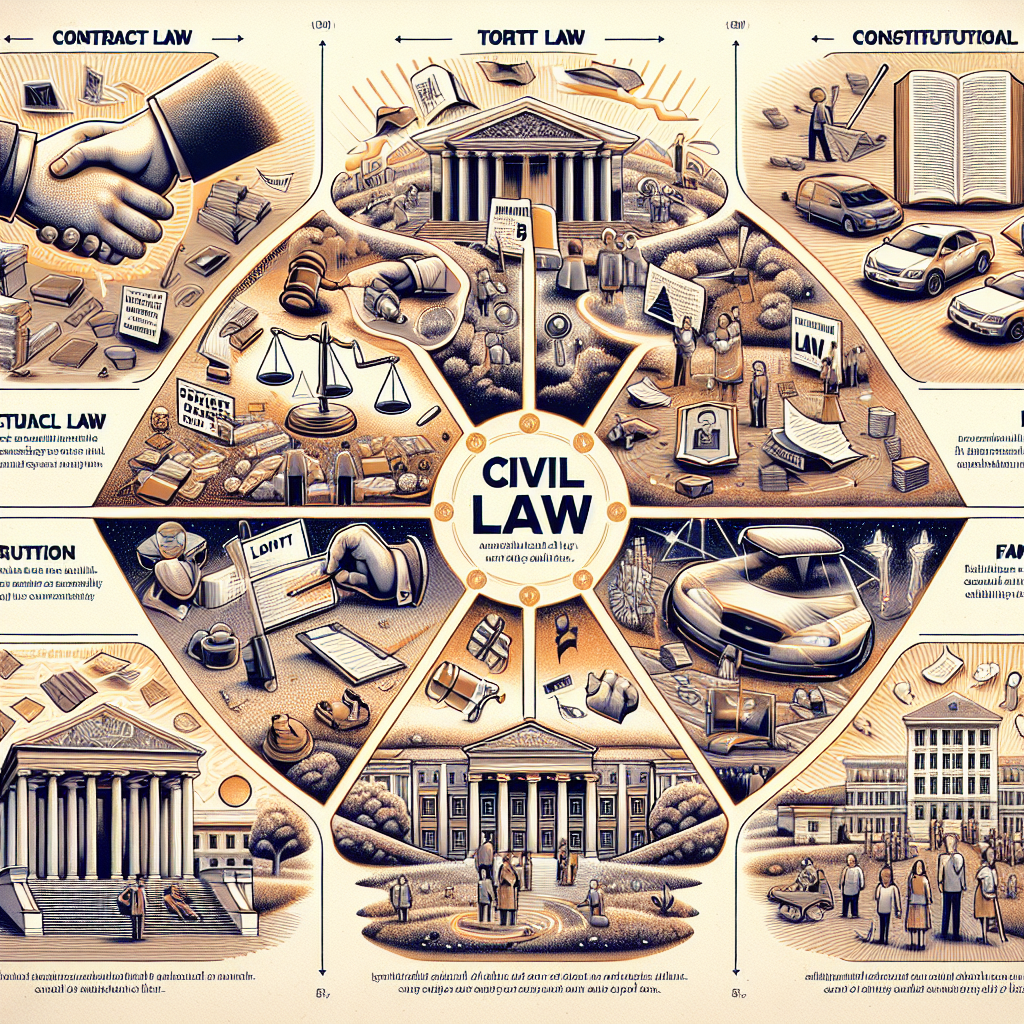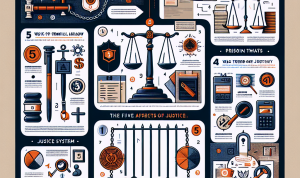Civil Law – When we think about the law, most of us imagine courtrooms, lawyers in suits, and some high-stakes drama. But civil law is everywhere – it’s quietly shaping your daily life, and you probably don’t even realize it. Trust me, after years of missteps and hard-earned lessons, I’ve realized just how much this area of law creeps into everything I do, from signing contracts to navigating disputes with my neighbors. Let’s break down the six key areas where civil law impacts all of us.

Table of Contents
ToggleHow Civil Law Affects Your Everyday Life: 6 Key Areas
1. Contracts You Sign Every Day
If you’re like me, you’ve probably signed a ton of contracts without a second thought. Maybe it was for your cell phone plan, a gym membership, or even that lease you signed for your apartment. You might think contracts are only for huge deals, but every agreement you enter into legally binds you to certain terms.
One time, I learned the hard way about overlooking fine print when I signed up for a subscription service. I didn’t realize there was a clause that automatically renewed my membership for another year. The day I tried to cancel, I found myself in a battle with customer service, and they kept quoting “contractual obligations” at me. That’s civil law in action! Contracts are everywhere, and understanding them – even the small stuff – can save you from future headaches.
Tip: Before signing anything, slow down. Read every clause, especially the fine print. If something doesn’t make sense, ask. It’ll save you a lot of frustration later on.
2. Property and Real Estate Laws
If you own a home, rent an apartment, or even just have a storage unit, civil law is there behind the scenes, guiding what you can and can’t do. One thing I didn’t realize until I had a roommate situation go sideways was how much property law could come into play in everyday living.
A few years ago, I had a situation where a roommate left without paying their share of the rent. It turned into a huge issue because of the rental agreement. I had to figure out how to handle it legally, and it was a pain. In the end, I learned a lot about tenant rights, the responsibilities of co-signers, and how the law ensures you aren’t stuck paying for someone else’s mistakes.
Tip: If you’re ever renting or sharing space, make sure all agreements are in writing. Know your rights as a tenant and understand the lease terms. Being informed means you won’t get stuck in a bad situation.
3. Personal Injury and Liability
Accidents happen, but when they do, understanding personal injury law can help you navigate the aftermath. A few years back, I slipped on an icy sidewalk outside a store (yep, I did a full-on dramatic fall), and I quickly learned that civil law is what determines who’s responsible for that injury.
I was lucky enough that the store had insurance, but dealing with the legal aspects of who was at fault was a headache. Turns out, stores and property owners have a responsibility to maintain safe conditions, and if they don’t, they can be held liable for injuries that happen on their property.
Tip: If you’re injured in an accident, don’t just walk it off. Document everything, take photos if you can, and talk to a lawyer if it seems like there’s a potential claim. Civil law can work in your favor if you’re hurt due to someone else’s negligence.
4. Family Law and Divorce
I hate to bring it up, but family law is another area where civil law is front and center, especially when things don’t go as planned. If you’ve ever had a friend go through a divorce or a custody battle, you know how tangled things can get. Civil law governs everything from child custody to division of property and spousal support.
I once saw a close friend go through a messy divorce. The amount of paperwork, negotiations, and legal maneuvering involved was mind-boggling. They were able to work things out, but it really made me appreciate the role of civil law in setting clear, fair expectations for everyone involved.
Tip: If you’re ever facing family legal issues, it’s essential to get a good lawyer who specializes in family law. They can help guide you through what can be an emotional and complicated process. You don’t have to do it alone.
5. Consumer Protection
Ever bought something that didn’t live up to expectations or wasn’t as advertised? Civil law is behind the consumer protection laws that help you get your money back or at least make sure businesses don’t get away with fraud. This came into sharp focus for me the time I bought a “new” smartphone off an online marketplace and received a broken, clearly-used model instead.
Thanks to consumer protection laws, I was able to file a complaint, and with some persistence, I got a refund. But if I hadn’t known about my rights under the law, I might have just chalked it up as a loss. Civil law ensures that businesses can’t just take advantage of customers without consequences.
Tip: If you feel like you’ve been cheated, don’t just accept it. Look into consumer protection laws in your area, file complaints with the proper authorities, and push for what you’re owed.
6. Dispute Resolution
You don’t have to be in a courtroom to experience civil law – it’s often at play when you’re trying to resolve disputes in a more casual setting, like with a neighbor or a contractor. I’ve had my share of disagreements with contractors about home repairs. At one point, I had a disagreement over the cost of a job that wasn’t completed to my satisfaction.
Instead of just arguing, I learned that civil law has mechanisms in place to help resolve these issues, from small claims courts to mediation. The law provides a way to settle disputes without having to go all-out with a lawsuit.
Tip: Always try to resolve disagreements amicably first. If it doesn’t work, know that small claims court or mediation can be affordable options for resolving issues without going full courtroom drama.
Civil law is all around you, often in ways you might not realize at first. Whether it’s the contract you sign for a new phone, a neighbor dispute, or the protection of your rights as a consumer, it plays a role in almost everything we do. Understanding your rights in these areas can save you time, money, and headaches, and who doesn’t want that? By keeping an eye out and knowing the basics of how civil law applies to your life, you’ll be able to avoid common pitfalls and tackle challenges head-on when they arise.




